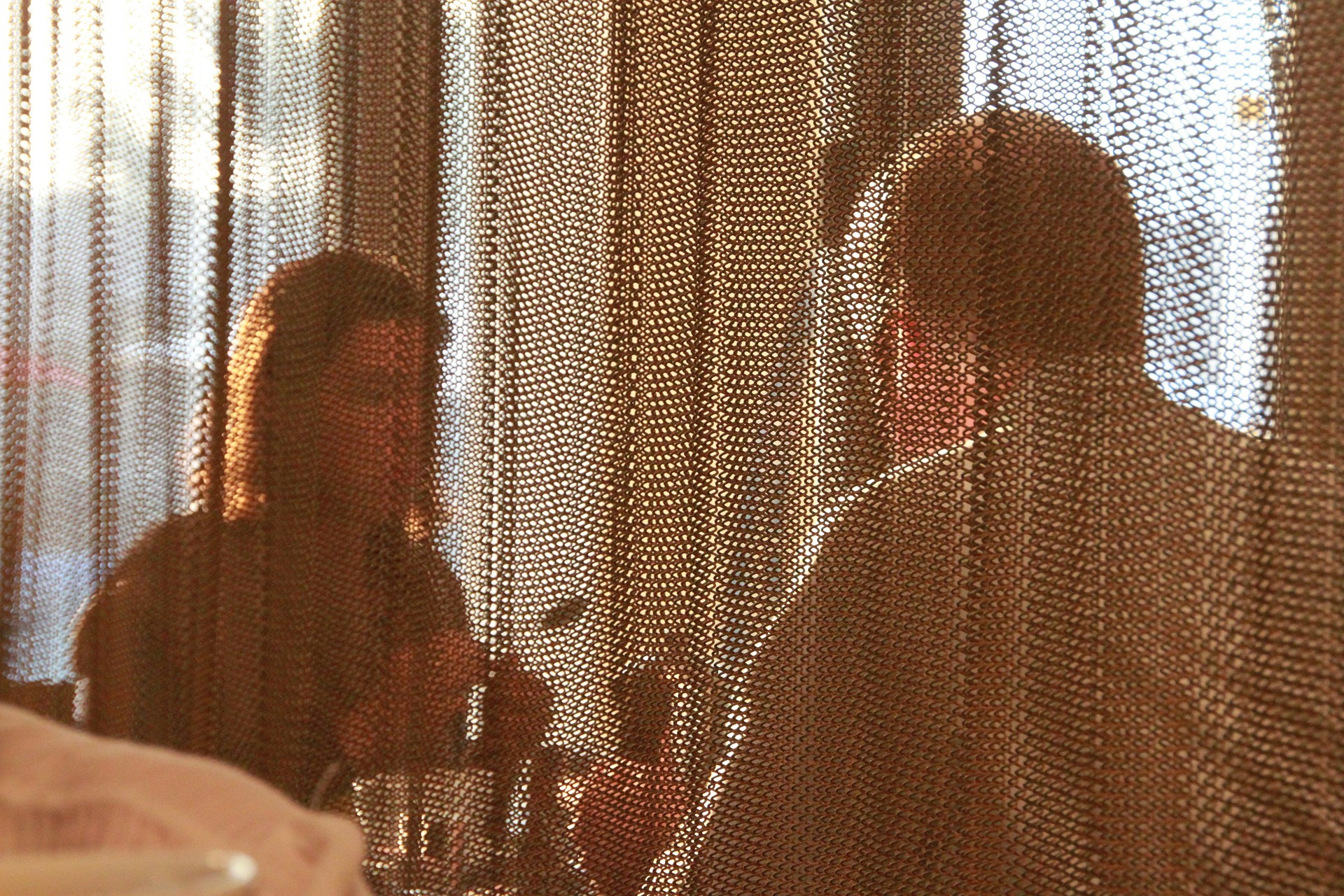 About a month ago I emailed an Ignatian colleague and asked to have a phone conversation with her as I prepared to enter a new role at a parish in the Atlanta area. I wanted to pick her brain. She wasn’t sure when we were moving but said that if I were in Atlanta on a certain week we could meet in person as she was visiting family then. It just so happened that my wife and I were in town that same week to lead a retreat and look for housing, before moving later in the month. What a coincidence that we both happened to be visiting the same area at the same time! I commented to my wife that it seemed God had brought us together so conveniently for an in-person meeting. But then I paused. I’m careful to say that I’m “blessed” for this or that, as if God cares more about arranging a meeting than curing someone from cancer or helping the poor. When I do say that I feel blessed I’m aware that it’s said more out of a feeling of gratitude and recognition of the gifts in my life. It’s not as if God is choosing to bless me more than another person. Yet we say this all the time as if that is the case.
About a month ago I emailed an Ignatian colleague and asked to have a phone conversation with her as I prepared to enter a new role at a parish in the Atlanta area. I wanted to pick her brain. She wasn’t sure when we were moving but said that if I were in Atlanta on a certain week we could meet in person as she was visiting family then. It just so happened that my wife and I were in town that same week to lead a retreat and look for housing, before moving later in the month. What a coincidence that we both happened to be visiting the same area at the same time! I commented to my wife that it seemed God had brought us together so conveniently for an in-person meeting. But then I paused. I’m careful to say that I’m “blessed” for this or that, as if God cares more about arranging a meeting than curing someone from cancer or helping the poor. When I do say that I feel blessed I’m aware that it’s said more out of a feeling of gratitude and recognition of the gifts in my life. It’s not as if God is choosing to bless me more than another person. Yet we say this all the time as if that is the case.
 Coincidence? Providence?
Coincidence? Providence?
Was it “providence” that the person I wanted to speak with and I were in the same place at the same time? Some say there’s no such thing as coincidence, that there’s only providence. Yet coincidence is more common that we think. We see someone at the grocery store we had just been thinking about. Our favourite song comes on the radio the moment we turn on the car. Yet how often do we go shopping at the same place that person from our community also shops? How many times do we daily get into the car and listen to a radio station that tends to play that song? In a series of a thousand incidents that go unnoticed, we notice that one incident that seems miraculous. So what is God’s involvement in our lives? Does God have a hand in coincidences? Saint Ignatius said that God is intimately involved in our lives. So does that mean God cares about finding us parking spaces or giving us more abundantly than others in the world?
 When good happens, like a new job, an unexpected financial gain, a cured illness, or a miraculous survival from a car crash, we tend to ascribe it to God’s work. When something bad happens like financial ruin or a lost battle with cancer, we blame bad choices or bad luck or—sadly—ineffective prayers. You may have heard of the Texas Sharpshooter Fallacy. A sharpshooter shoots several rounds at a blank wall and the draws a bull’s-eye around the spot with the most bullet holes. It looks like the sharpshooter is an excellent marksman. This is how we can treat God. If a tornado destroys a city but a church is left standing, we attribute its saving to God. Yet how many other tornadoes destroyed churches in other cities? Did God preference this one? How many other families lost loved ones to illness or car crashes? Does God preference your loved one if they were saved?
When good happens, like a new job, an unexpected financial gain, a cured illness, or a miraculous survival from a car crash, we tend to ascribe it to God’s work. When something bad happens like financial ruin or a lost battle with cancer, we blame bad choices or bad luck or—sadly—ineffective prayers. You may have heard of the Texas Sharpshooter Fallacy. A sharpshooter shoots several rounds at a blank wall and the draws a bull’s-eye around the spot with the most bullet holes. It looks like the sharpshooter is an excellent marksman. This is how we can treat God. If a tornado destroys a city but a church is left standing, we attribute its saving to God. Yet how many other tornadoes destroyed churches in other cities? Did God preference this one? How many other families lost loved ones to illness or car crashes? Does God preference your loved one if they were saved?
I’m not dismissing that God can indeed do miracles, but I don’t believe that’s how God typically intervenes. I believe our faith is a lens through which we see and interpret the world. One who has a strong faith and trust in God’s bountiful love holds onto that love whether or not their loved one dies. Faith gives us a hope that in the end all will be well. That wellness may come in survival of cancer, or it may come in the faith that your loved one is returning to full union with God, or that we can move forward in the wake of tragedy.
How is God involved?
So was it God who brought my colleague and me into the same place at the same time? From the Ignatian perspective, God is continually extending to us invitations, in choices and in relationships. In some mysterious way, it was our series of yeses throughout life that brought us to Atlanta at that same time. It was a series of yeses that allowed my wife and me to meet. A different yes in the past may have changed the outcome and led to another “co-incident”. This is how God is involved in our lives: Not by creating magic or preferencing one incident over another, but by laying out invitations and asking for our involvement. Recognising the “blessing” of coincidences is recognising how that series of yeses mysteriously played out.
Remember, we are partners and collaborators in God’s project for the world. We often don’t realise the fullness of this. We assume too often that God is always ready to break God’s own laws of the universe to do miracles. Instead, God asks us to work within those boundaries and create life-saving medicines, to innovate, to make the world a safer place, to share what we have with others, and to be good stewards of the earth.
God is not a magician
Recently Cardinal Cupich of Chicago tweeted this:
The president’s misguided decision to withdraw from the Paris climate accord does not diminish our responsibility to care for the planet.
— Cardinal Cupich (@CardinalBCupich) June 2, 2017
Some responded to the Cardinal reminding him of Jesus’ words in Matthew 6:34: “So do not worry about tomorrow, for tomorrow will bring worries of its own. Today’s trouble is enough for today.” These people seem to assume we have no role in God’s creation, that we can sit back and let God take care of the big issues. Jesus’ words speak to needless anxiety or worry, not caring for the earth and one another. When we are ill we go to the doctor. We don’t assume this verse calls us to do nothing and expect God to miraculously cure us.
We are invited by God to collaborate and assist in caring for our neighbours through our discoveries and gifts, through our jobs and relationships, and through policy and diplomacy. As Daniel Lord, SJ put it in his prayer, God leans on us, counts on us.
For some strange reason, Lord, you depend on me.
What possible need could you have for my shoulder?
Why do you lean on me? Yet you do just that.
I am grateful. It is a challenge and a trust,
an inspiration and a call to character.
If you are willing to depend upon me,
weak and clumsy as I am,
I am eager not to fail you.
Lean on me, dear Lord.
At least pretend to find me a help.
May your sweet pretense
make me worthy of your very real trust.
The danger is that our faith becomes one of passive reliance on miracles, which makes God into a magician in the sky. Pope Francis famously said that God is not “a magician, with a magic wand.” Faith is having a relationship with the divine, who breathes and moves through us all, through our actions and intellect and love and free response. It was free response to God’s various invitations which led me to that coincidental meeting in Atlanta. There is a thread of yeses and choices and experiences that lead to such God moments. God’s intimate involvement is in and through all of us. Faith is recognising that in the flow of life, in all its joyful coincidences and terrible hardships, we are loved and all will be well.
Listen to the podcast version of this post…









Thank you for being God’s messenger in that series of yeses in my life.
Very insightful explanation about “coincidences” and our series of “yeses”. Each decision can be important in that series of “yeses”. Thank you.
Such a NEEDED conversation …
thank you for such a great post.